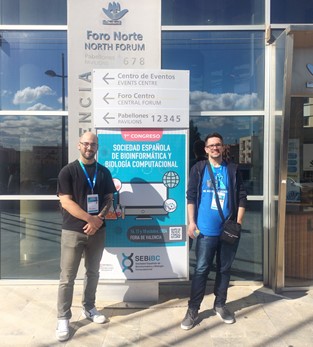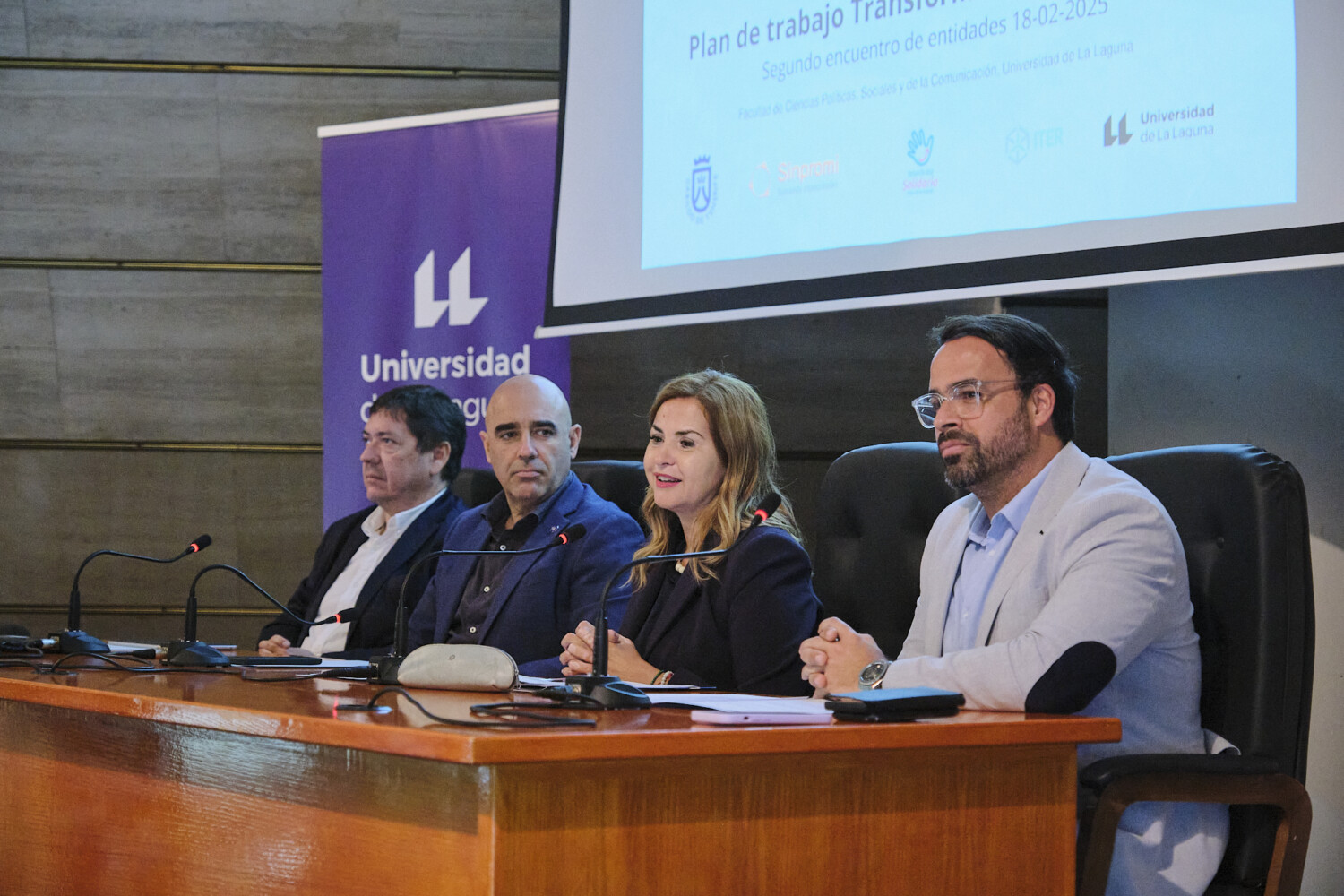The Genomics Area of ITER has participated in this event, which brought together leading scientists and professionals to address the most relevant advances in bioinformatics and computational biology, highlighting their contributions in genomic sequencing and bioinformatics analysis.
Research staff from the Genomics Area of the Instituto Tecnológico y de Energías Renovables (ITER) participated in the 1st Congress of the Spanish Society of Bioinformatics and Computational Biology (SEBiBC), held in Valencia, Spain, between October 16 and 18, 2024. This biannual event brought together professionals and experts in the field of bioinformatics and computational biology to share the latest scientific advances in key topics for the international scientific community such as obtaining the 3D structure of proteins, the application of Artificial Intelligence techniques in the field of bioinformatics, and single cell-based omics analysis, among others. The congress program included high-level presentations by leading national and international experts, and offered a dynamic and transversal space for the exchange of knowledge(https://congresosebibc.com/).
During the event, several members of the Genomics Area, together with collaborators, including researchers from the Fundación Canaria Instituto de Investigación Sanitaria de Canarias, presented several scientific contributions recognized for their relevance and innovation in the field of genomic sequencing and bioinformatics analysis. The papers presented were the following(see details here):
- “Benchmarking of Structural Variant Calling Tools on Short-Read Whole-Genome Sequencing Data.”. This work evaluates bioinformatics tools for the detection of structural variants (SVs) in human whole genome sequencing data obtained with Illumina short read technology. The study provides key information for improving the accuracy and efficiency of SV identification, which is essential for advancing the understanding of human genetics and its application in biomedical research.
- “Assessment of Bioinformatic Tools for De Novo Assembly of Human Whole Genomes Using Nanopore Sequencing Technologies.”. This paper analyzes various bioinformatics tools used for de novo assembly of whole human genomes from nanopore-based sequencing technologies from Oxford Nanopore Technologies, Ltd., both alone and combined with short reads obtained with second-generation sequencing technology from Illumina, Inc. The results provide important data for optimizing the accuracy and robustness of genome assemblies, facilitating a better approach to complex genomes and promoting advances in the field of genetics and genomics.
- “Identification of New Risk Genes in Sepsis-Induced Acute Respiratory Distress Syndrome Using a Whole Exome-Based Approach”. This work investigates genetic risk factors for sepsis-induced acute respiratory distress syndrome (ARDS) based on whole exome sequencing data from a cohort of patients with sepsis, considering as cases those who developed the syndrome versus controls who did not develop ARDS. Considering only genes harboring potentially deleterious rare variants, 19 distinct gene clusters associated with risk of respiratory syndrome development were identified, with an average of 102 genes per cluster. This suggests a genetic influence on the development of sepsis-induced ARDS. Upon further testing, the results also suggest that the genetic factors associated with severity are distinct from those affecting patient mortality.
Within the framework of the congress, the National Symposium of Bioinformatics Students was also held, organized by RSG-Spain (ISCB Student Council group), with the aim of promoting the training and professional development of young researchers.






